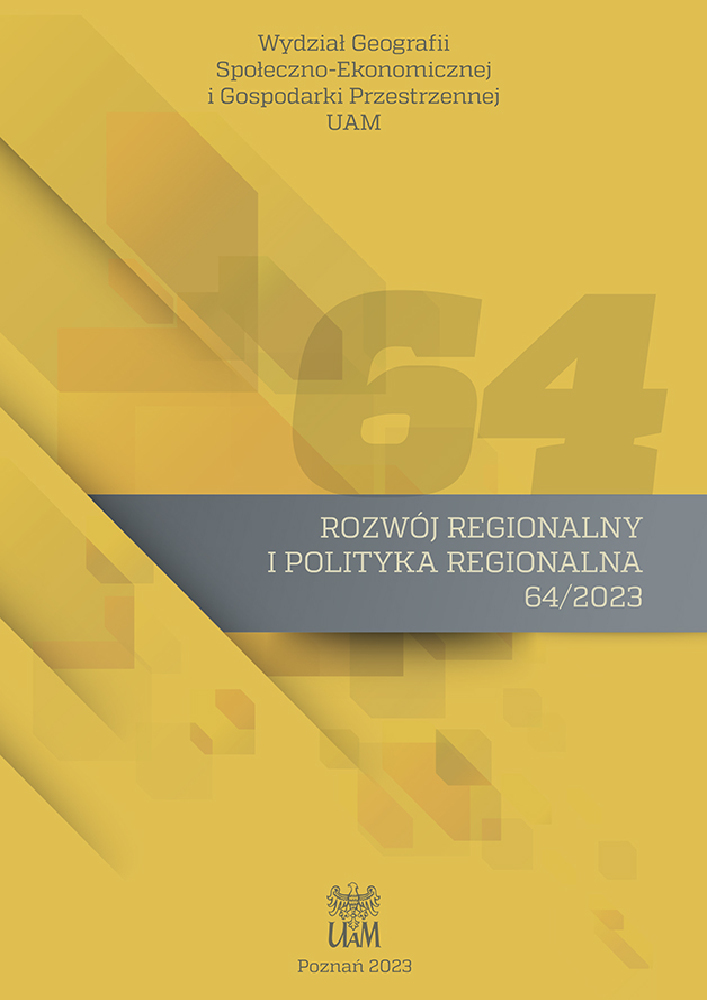Abstract
In January 2018, the Davos Declaration “Towards high-quality Baukultur for Europe” was adopted. It was signed by the Culture Ministers of various European countries. The Baukultur concept covers every human activity that changes built space and it relates to different scales. The Declaration lists eight criteria of place quality: Sense of Place, Functionality, Diversity, Economy, Environment, Context, Governance and Beauty. The research concerns selected cities from two regions of Germany: Kempen, Straelen, Hallenberg, Warburg, Krefeld Linn, Parchim, Grabow, Güstrow. The article describes in detail three selected criteria for Diversity, Environment and Beauty. Many benefits for society resulting from the high-quality culture of space have been indicated. Attention was paid to the holistic approach to solutions concerning both public space in the city, the development of various forms of green areas, as well as landscape issues of suburban zones. A holistic approach to the space built in the presented cities combines contemporary architecture with historical tissue as well as cultural and natural heritage. Respecting traditional forms of greenery and complementing them with new planting contributes to preserving the local character of the place in the towns in question. A high awareness of the influence of greenery on the quality of life results in appropriate planning and management of green areas in the city, including within the old part of the city. A thoughtful green space policy improves the quality of life in a city.
References
Akincza M., Knercer-Grygo U. 2012. Tereny zieleni w przestrzeni miejskiej – fanaberia czy uzasadniona potrzeba? [W:] C. Kardasz, J. Możdżeń, M. Spychaj (red.), Miasto jako fenomen społeczny i kulturowy. Zbiór studiów. Wyd. Naukowe UMK, Toruń, s. 85–96.
Dümpelmann S. 2019. Seeing Trees. A History of Street Trees in New York City and Berlin. Yale University Press, New Haven, London, s. 11–12, 21–42. DOI: https://doi.org/10.12987/9780300240702
Forczek-Brataniec U. 2018. Przestrzeń widziana. Analiza widokowa w planowaniu i projektowaniu krajobrazu. Wyd. PK, Kraków.
Gehl J. 2009. Życie między budynkami. Wyd. RAM, Kraków.
Gehl J. 2014. Miasta dla ludzi. Wyd. RAM, Kraków.
Gehl J., Svarre B. 2021. Jak studiować życie w przestrzeni publicznej. Narodowy Instytut Architektury i Urbanistyki, Warszawa.
Gestaltungshandbuch für die Parchimer Altstadt. 2019. Stadt Parchim.
Krier L. 2011. Architektura wspólnoty. Wyd. słowo/obraz terytoria, Gdańsk.
Lenartowicz J.K. 2020. O etykę architektury. Teka Komisji Urbanistyki i Architektury, 48: 3–33.
Lynch K. 2011. Obraz miasta. Archivolta, Kraków.
Niedźwiecka-Filipiak I, Ozimek P, Akincza M., Kochel L., Krug D., Sobota M., Tokarczyk-Dorociak K. 2019. Rekomendacje w zakresie prowadzenia analiz krajobrazowych na potrzeby wyznaczania stref ochrony krajobrazu. DGOŚ, Warszawa.
Sim D. 2020. Miasto życzliwe. Jak kształtować miasto z troską o wszystkich. Wyd. Wysoki Zamek, Kraków
Sirel A., Sirel O.Ü. 2018. Universal Design – Approach for the Participation of the Disabled in Urban Life. Journal of Civil Engineering and Architecture, 12: 11–21. DOI: https://doi.org/10.17265/1934-7359/2018.01.002
Szczepanowska H.B. 2007. Ekologiczne, społeczne i ekonomiczne korzyści z drzew na terenach zurbanizowanych. Człowiek i Środowisko, 31(3–4): 5–26.
Szczepańska M. 2011. Miasto-ogród jako przestrzeń zamieszkania, pracy i rekreacji – dawniej i dziś. Studia Periegetica, Zeszyty Naukowe Wielkopolskiej Wyższej Szkoły Turystyki i Zarządzania w Poznaniu, 6.
The Davos Baukultur Quality System. Eight criteria for a high-qality Baukultur – the whole story. 2018. [W:] Davos Declaration.
Barrierefreie Innenstadt, Hansestadt Warburg (https://www.warburg.de/bauen-br-wirtschaft/bauen-und-stadtplanung/barrierefreie-innenstadt ; dostęp: 15.12.2022).
Barrierefreiheit für Baudenkmäler und Bestandsbauten. 2018. Denkmalpflege Informationen, 3.
https://www.government-mv.de/Mecklenburg-Vorpommern/ (dostęp: 9.02.2023).
https://www.grabow.de/stadt-grabow (dostęp: 20.02.2023).
https://kempen.de/de/inhalt/altstadtsanierung/ (dostęp: 15.12.2022).
https://www.mecklenburg-vorpommern.de (dostęp: 21.02.2023).
https://ru-geld.de/pl/country/federal-states/nordrhein-westfalen.html (dostęp: 21.02.2023).
Ku wysokiej jakości Baukultur dla Europy (https://www.gov.pl/web/kultura/deklaracja-z-davos---ku-wysokiej-jakosci-baukultur-dla-europy ; dostęp: 15.12.2022).
License
Copyright (c) 2023 Marta Akincza, Wiesława Gadomska

This work is licensed under a Creative Commons Attribution 4.0 International License.

